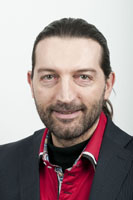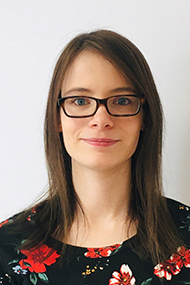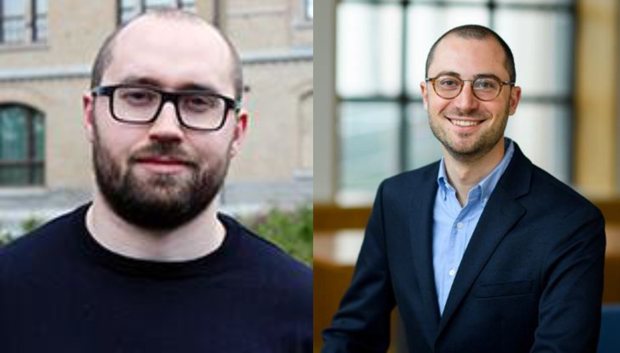Previous events - Page 22
Fulvio Castellacci (director at TIK) speaks about his research on innovation and social welfare. The webinar is hosted by the UCL Institute for Innovation and Public Purpose, an institute founded and directed by Mariana Mazzucato.
The mission of the Centre for Global Health Inequalities Research (CHAIN) is to create a global transformation in actionable health inequalities research. Bringing together leading scholars and international organizations and acting as a change agent, researchers at CHAIN aim to monitor, explain, and reduce health inequalities in the global North and South.
Welcome to University of Oslo Arctic Day 2021: The Arctic Ocean: Concerns & Consequences at The Science Library, Vilhelm Bjerknes hus, Blindern.
Title of the presentation "International Sports Events, Media Attention, and Repression: Evidence from the 1978 FIFA World Cup"
Abstract
How do international sports events shape repression in authoritarian host countries? International tournaments promise unique gains in political prestige through global media attention. However, autocrats must fear that foreign journalists will unmask their wrongdoings. We argue that autocracies solve this dilemma by strategically adjusting repression according to the spatial-temporal presence of international media. Using original, highly disaggregated data on the 1978 World Cup, we demonstrate that the Argentine host government largely refrained from repression during the tournament, but preemptively cleansed the streets beforehand. These adjustments specifically occurred around hotels reserved for foreign journalists. Additional tests demonstrate that: 1) before the tournament, repression turned increasingly covert, 2) during the tournament, targeting patterns mirrored the working shifts of foreign journalists, 3) after the tournament, regime violence again spiked in locations where international media had been present. Together, the paper highlights the human costs of mega-events, contradicting the common whitewashing rhetoric of functionaries
Lecturer: Elizaveta Gaufman, University of Groningen
Student Financing for Social Equity in Norway, 1947–2020
R. Daniel Kelemen presents the paper 'Where Have the Guardians Gone? Law Enforcement and the Politics of Forbearance in the European Union' co-authored with Tom Pavone at the ARENA Tuesday seminar on 26 October 2021.
Title of the presentation "Ethnic Inequality and Regime Change: Investigating an Asymmetric Relationship"
Abstract
Title: The Institutional Sources of Economic Transformation: Energy Policy from the Oil Crises to Climate Change
Abstract
Why are some governments more effective in promoting economic change than others? We develop a theory of the institutional sources of economic transformation. Domestic institutions condition the ability of policymakers to impose costs on consumers and producers. We argue that institutions can enable transformation through two central mechanisms: insulation and compensation. The institutional sources of transformation vary across policy types—whether policies impose costs primarily on consumers (demand-side policies) or on producers (supply-side policies). Proportional electoral rules and strong welfare states facilitate demand-side policies, whereas autonomous bureaucracies and corporatist interest intermediation facilitate supply-side policies. We test our theory by leveraging the 1973 oil crisis, an exogenous shock that compelled policymakers to simultaneously pursue transformational change across OECD countries. Panel analysis, case studies, and discourse network analysis support our hypotheses. The findings offer important lessons for contemporary climate change policy and low-carbon transitions.
Politics and administrative turnover in highly meritocratic systems
With Stephen D. Ashe (Durham University), John P. Jackson (Michigan State University) and Rae Jereza (New Jersey Institute of Technology)
Anne Rasmussen presents the paper 'The Unequal Effects of the COVID-19 Pandemic on Political Interest Representation' co-authored with Gregory Eady at the ARENA Tuesday seminar on 12 October 2021.
Lecturer: Richard Javad Heydarian
With Maura Conway (Dublin City University)
Lucy Kinski presents the paper 'Who talks to whom and who doesn't? Using social network models to understand debate networks in the European Parliament' at the ARENA Tuesday seminar on 28 September 2021.
Title of the presentation "Land Property Rights, Cadasters and Economic Growth: A Cross-Country Panel 1000-2015 CE”
Abstract
Since the transition to agricultural production, property rights to land have been a key institution for economic development. Clearly defined land rights provide economic agents with increased access to credit, secure returns on investment, free up resources used to defend one's land rights, and facilitate land market transactions. Formalized land records also strengthen governments' capacity to tax land-owners. Despite a large body of extant micro-level empirical studies, macro-level research on the evolution of formal rights to land, and their importance for economic growth, has so far been lacking. In this paper, we present a novel data set on the emergence of state-administered cadasters (i.e. centralized land records) for 159 countries over the last millennium. We also analyze empirically the association between the development of cadastral institutions and long-run economic growth in a panel of countries. Our findings demonstrate a substantive positive effect of the introduction of cadasters on modern per capita income levels, supporting theoretical conjectures that states with more formalized property rights to land should experience higher levels of economic growth.
In recent years, scientists like Kathryn Paige Harden have shown that DNA makes us different, in our personalities and in our health—and in ways that matter for educational and economic success in our current society.
Catherine De Vries presents the paper 'Elite-Mass linkages in the preference formation on differentiated integration' at the ARENA Tuesday seminar on 14 September 2021.
Title of the presentation "Regime Threats and State Solutions”
Lecturer: Cristina Moreno Almeida, King's College London
Guest lecture by Dr. Margaret Sheridan, UNC Chapel Hill
Ten years since the 22 July 2011 attacks in Norway, the right-wing extremism landscape has significantly shifted. This Live Briefing, hosted by ICCT in collaboration with the Center for Research on Extremism (C-REX) at the University of Oslo and the Polarization and Extremism Research Innovation Lab (PERIL) at American University in Washington D.C., will feature a roundtable discussion by leading academic and policy experts on right-wing extremism.
C-REX and CEP have organized an online public event to commemorate the Oslo/Utøya and 9/11 attacks, analyze their long-term impact, and assess the current terrorist landscape emanating from the extreme right-wing terrorist milieu as well as the Islamist terrorist scene. The recordings of the webinar are available below.
Øyvind Stiansen and Tommaso Pavone present the paper 'The NAV Scandal and the Shadow Effect of Courts: Judicial Review and the Politics of Preemptive Reform' at the ARENA Tuesday seminar on 24 August 2021.
Lecturer: Ihsan Yilmaz, Deakin University











